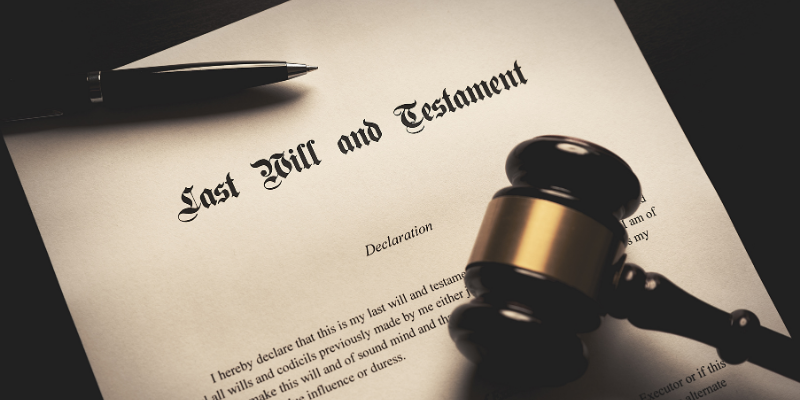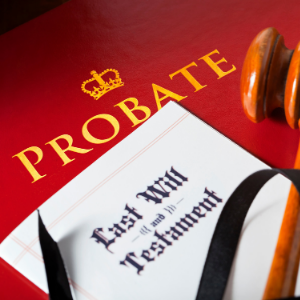
Understanding the Role of an Executor in Estate Management
In Bristol, Connecticut, the position of executor in estate management is critical for negotiating real estate and probate rules. An executor, appointed by a will or a court, has a fiduciary duty to administer the deceased’s estate, paying all debts and distributing assets according to the will.
This frequently entails selling property to repay debts or distribute proceeds among beneficiaries. To legally sell property in Bristol, Connecticut, an executor must seek probate court clearance first.
The probate process validates the will’s legitimacy and authorizes the executor to act on behalf of the estate. Executors must closely follow Connecticut probate regulations when handling real estate transfers, which include obtaining appraisals and ensuring fair market value sales.
Failure to observe these rules can result in legal issues or disagreements among heirs. As a result, executors must understand local real estate rules and maintain open communication with beneficiaries when carrying out their duties in handling an estate, including property transactions in Bristol.
The Legal Framework Governing Wills and Executors in Connecticut

In Connecticut, the legal framework governing wills and executors is regulated by particular probate laws that detail an executor’s duties and powers. When people die, their will is critical in establishing how their estate is administered and divided.
According to Connecticut law, the executor, designated either through the will or by the probate court if no will exists, is responsible for administering the estate. This includes settling debts, paying taxes, and transferring assets to beneficiaries as directed by the will.
An executor in Bristol, CT, and elsewhere in the state may be required to sell property to manage the estate. However, selling real estate necessitates following precise legal procedures, which frequently require court approval to ensure compliance with probate requirements.
Executors must also follow fiduciary obligations, which oblige them to act in the estate’s and beneficiaries’ best interests. Understanding these legal standards is critical for executors working with real estate transactions in Connecticut’s probate system.
Distinctions Between Testate and Intestate Estate Administration
In Bristol, CT, administering a testate estate, where the decedent has left a legal will, is very different from managing an intestate estate, where no will exists. For testate estates, the executor named in the will is responsible for selling property and managing other assets following the decedent’s explicitly expressed desires.
This process frequently involves probate court validation to ensure the executor has the legal authority to manage and sell real estate as the will instructs. In contrast, in the case of an intestate estate, the probate court selects an administrator who distributes assets according to Connecticut intestacy statutes.
Property purchases must follow regulatory criteria rather than specific instructions from a will. Executors in testate cases are given more specific instructions for asset distribution, whereas administrators in intestate estates rely on state legislation to identify legal heirs and conduct property sales accordingly.
These distinctions impact how property in Bristol is sold during probate procedures, emphasizing the need to understand testate and intestate processes in local real estate and probate law contexts.
Key Responsibilities of an Executor in Bristol, Connecticut
In Bristol, Connecticut, the executor of an estate is responsible for handling and settling the decedent’s affairs according to probate statutes. One of the most essential jobs is inventorying and valuing all assets, including real estate.
Before distributing the estate’s assets to beneficiaries, the executor must check that all debts and taxes have been paid. If they follow Connecticut probate procedures, the executor can sell property to meet these obligations or promote equitable distribution.
This may require judicial clearance, particularly if the will provides specific instructions or beneficiaries oppose the sale. The executor is also responsible for maintaining open communication with all parties involved. This includes delivering notices about major decisions like property sales and ensuring that all acts meet the estate’s interests and legal obligations.
To effectively manage these responsibilities, you must have a solid awareness of Bristol’s real estate practices and probate procedures and a general understanding of Connecticut.
Navigating Probate Court Processes in Connecticut Estates
Navigating Connecticut’s probate court processes requires an awareness of several fundamental components of estate and real estate law, including the position of an executor. In Bristol, CT, and throughout the state, the probate court must officially appoint an executor to oversee the decedent’s estate.
This legal appointment is necessary before any property transactions can take place. An executor has a fiduciary duty to act in the best interests of the beneficiaries and follow Connecticut probate laws.
Selling property within an estate requires court approval unless explicitly stated in the will. The executor must ask the probate court for permission to sell real estate assets.
This process includes contacting all relevant parties and sometimes attending a hearing where objections can be raised. Executors should provide detailed evaluations and explain that selling the property is consistent with debt settlement or effective asset distribution among heirs.
Familiarity with the local real estate market in Bristol, CT, and collaboration with licensed realtors can benefit executors seeking to optimize returns on property sales during probate processes. Understanding these complexities enables executors to execute their duties while adhering to Connecticut’s legislative framework governing estates.
Legal Requirements for Selling Property by Executors in Connecticut
In Connecticut, an executor’s right to sell property is governed by probate rules, which necessitate following precise legal procedures. When handling real estate in Bristol, CT, the executor must first establish that they have been appropriately appointed by the probate court and have received the necessary Letters Testamentary.
This document gives them the legal authority to administer the deceased person’s estate, which includes selling property. Before proceeding with a sale, executors must ensure the will enables such a transaction; otherwise, they may require extra court clearance.
Executors are responsible for appropriately assessing the property, which frequently requires an assessment to determine fair market value. Once ready to sell, they must follow instructions provided in the will or as directed by the court.
The Connecticut probate process requires that beneficiaries and possible heirs be notified of the planned sale to avoid disputes. When advertising properties on behalf of an estate, executors should choose real estate agents who are knowledgeable about the local market and follow all state disclosure laws.
Maintaining transparency during this process is critical to complying with Connecticut’s probate statutes and real estate rules.
Ensuring Compliance with State Laws When Selling Inherited Properties

Executives must follow Connecticut’s real estate and probate rules to efficiently manage the sale of inherited properties in Bristol, CT. Executors are responsible for following state and local requirements, including obtaining probate court approval before proceeding with any transaction.
Understanding the Connecticut probate process is critical because it determines the executor’s capacity to transfer ownership of the property legally. Executors must also collaborate closely with a skilled real estate attorney who may advise on specific legal procedures and potential tax ramifications when selling an inherited property.
Executors should also be aware of any restrictions mentioned in the deceased’s will or trust paperwork, which may limit their ability to sell the property. Ensuring compliance with all relevant state legislation protects beneficiaries’ interests and reduces the likelihood of legal disputes throughout the selling process.
If you’re navigating the probate process and need to sell your inherited house with the executor of a will, Valley Residential Group LLC can help make the process easier. They specialize in buying homes as-is for cash in Bristol and the nearby city of Plainville, assisting families to skip delays, court complications, and agent fees. Whether you’re ready to sell your Bristol house fast or need guidance through an estate sale, Valley Residential Group LLC is a friendly, local resource that understands both the emotional and legal side.
Steps to Take Before Selling a Deceased’s Property
In Bristol, CT, selling a deceased person’s property starts with ensuring that the executor understands the Connecticut probate laws. This includes applying for the required legal permissions and confirming that the probate court has validated the deceased’s will.
The executor must collect the testamentary letters authorizing them to manage and liquidate the deceased’s real property. Evaluating the property’s approaching condition is essential; engaging a skilled evaluator will ensure an accurate valuation.
The executor should also engage a local real estate broker to gain better insight into the Briston CC market so that the property may be listed competitively. Before advertising the property, Estate debts must be settled first because clearance will facilitate the trade.
Valuing, preparing, and presenting a house to potential buyers will enhance its attractiveness and market value. All actions during this preparation period should be recorded meticulously to prove compliance with the real estate laws and probate matters.
Executors managing estate property outside Bristol and those looking to sell their house fast in Plainville must also follow the same probate procedures and legal requirements, including court approvals, accurate property valuation, and proper beneficiary notification.
Tax Consequences For Executors Of Selling Real Estate In Bristol, CT
Knowing the tax consequences of selling real estate in Bristol, CT, as an executor is necessary for efficiently handling the deceased’s estate. Executors must observe both federal and Connecticut taxation laws.
Real estate sales could trigger capital gains taxes, which are calculated based on the difference between the selling price of the property and its fair market value as of the decedent’s date of death. This step-up in basis, where asset value is adjusted for the tax-deferred increase, might make a significant difference in the tax bill.
Moreover, the executors must check any outstanding property taxes for Bristol that must be settled pre- or post-transaction. Connecticut has a probate fee that is charged depending on the value of the estate, and this also needs to be taken into account while planning for the sale of other estate assets like real property.
Executors need to know that federal and state estate taxes apply if the estate’s total value crosses certain limits. Adequate evidence and timely payment of necessary fees, alongside crafted paperwork, help avoid penalties and facilitate the entire process, which aids in smooth transactions throughout it.
In Connecticut, probate and real estate transactions pose challenging tax obligations. Consulting a tax professional may help you determine how to lessen the estate’s tax burden.
Does the Executor of a Will Have the Right to Sell Property?
In Bristol, CT, the executor of a will is permitted to sell property under specific conditions. As part of their fiduciary duties, executors manage an estate’s assets and distribute them according to the will’s provisions.
This involves selling real estate to pay debts or taxes owed on the estate or fairly allocating value amongst beneficiaries. In Connecticut, an executor must seek Probate Court approval before conducting a sale.
This legal oversight ensures that every action taken is for the benefit of the creditors and heirs and is free of fraud. Executors need to be knowledgeable about local real estate laws to avoid problems related to property appraisal, current market conditions, and negotiations with potential buyers.
A probate attorney or a real estate agent who knows the Bristol area very well can offer vital advice during the sale process. Knowing these legal requirements is essential for an executor who wants to fulfill their responsibilities accurately within the boundaries of Connecticut laws governing probate and real estate matters.
How Long Does an Executor Have to Settle an Estate in Connecticut?
In Connecticut, an executor has specific responsibilities regarding the estate. They must try to quickly settle the estate as the probate process officially begins with the Probate Court appointing an executor who manages the estate.
Connecticut has no statutory limit on the time it takes to settle an estate; however, legal obligations must be fulfilled with reasonable speed. There are no fixed timelines, but many executors aim to complete in under a year.
This includes listing and documenting the assets, paying all relevant debts and taxes, and distributing the property to the beneficiaries. If real estate needs to be liquidated as part of the estate settlement process in Bristol, CT, or any other part of Connecticut, selling it could take longer due to market conditions and time-consuming regulatory processes.
Executors must adhere to the probate laws and follow instructions from the will or the probate court. Executors managing estates involving real estate transactions in Bristol or elsewhere in Connecticut need to know the state’s probate laws.
How Powerful Is the Executor of a Will?

An executor possesses great power and responsibility, especially in managing and distributing a deceased person’s estate. In Bristol, CT, like in many other places, it is part of her authority as executor to sell property to pay debts and distribute the estate according to the decedent’s wishes.
Executors handle probate matters and the stipulations in the will. It is common to seek court approval before real estate transactions to ensure that all activities are above board and for the benefit of the stakeholders.
The role requires balancing all the necessary legal processes and the deceased’s wishes. In addition to those considerations, Bristol executors must deal with Connecticut’s peculiar probate features, such as appraising properties, paying taxes, and distributing sale proceeds among the designated heirs.
Understanding the tasks and responsibilities is crucial to achieving efficiency, minimizing conflict, and avoiding legal complications in probate proceedings.
Can the Executor of a Will Take Everything?
In Bristol, CT, an executor is bound to the probate and the will’s provisions when administering an estate. Even though the Executor has significant responsibilities and powers, they cannot take everything.
An executor must fulfill their role in a fiduciary capacity, meaning they must act in the best interests of the beneficiaries. The probate court verifies that all assets are correctly tallied and distributed according to the will, and the Connecticut probate court probates the estates.
An executor will legally face problems if they attempt to sell or improperly distribute assets. Executors in Bristol have to understand their roles very well: to manage and settle loans, pay taxes, and allocate the property among the beneficiaries summoned parties without overstepping their powers or infringing the rights of the beneficiaries.
Executors found abusing their powers will likely be subject to video in the law of real property titles. Connecticut probate law could be liable for any tortuous breach of marriage contract.
Whether you’re navigating probate, working with an executor, or simply need to sell an inherited property quickly, Valley Residential Group LLC is here to help—offering a stress-free way to sell your house as-is for cash in Bristol, Plainville, and nearby Connecticut communities. Contact us at (860) 589-4663 for a no-obligation offer!
Helpful Bristol Blog Articles
- Understanding Real Estate Agent Fees For Selling Your Home In Bristol, CT
- Can an HOA Take Your House In Bristol, CT?
- Can An Executor Sell Property In Bristol, CT?
- How To Successfully Sell Your House At Auction In Bristol, CT
- How To Sell Your Bristol, CT Home Below Market Value
- Understanding Equity Requirements To Successfully Sell Your House In Bristol, CT
- Can Medical Debt Affect Your Home Ownership In Bristol, CT?
- How To Sell Your House Directly To The Bank In Bristol, CT
- Living In A House During Probate In Bristol, CT
- How To Sell A House With A Mortgage In Bristol, CT
- Understanding The Cost Of Home Staging In Bristol, CT: A Guide For Sellers
- Maximize Your Sale: How To Sell Your Bristol, CT House As-is Quickly And Effectively

| ESTATE EXECUTOR | PROBATE LAWYER | PROBATING | WOULD | INHERITANCE | LEGAL SERVICES |
| LAWYERS | TAX RETURN | EAST HARTFORD | HARTFORD | MORTGAGE | MONEY |
| INHERITANCE TAX | INSURANCE | HARTFORD | HARTFORD, CONNECTICUT | TRUSTS | LIVING TRUSTS |
| LAWSUIT | BANK | WEST HARTFORD | NEW BRITAIN | MIDDLETOWN | |
| MIDDLESEX COUNTY | MIDDLESEX | MANCHESTER | CROMWELL | CASH |
